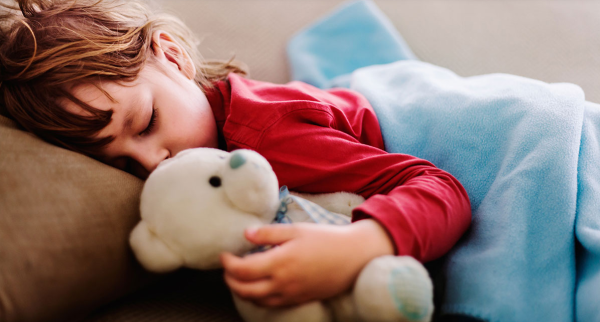


Safeguarding their sleep is one of the most important things you can do to protect your child’s mental and physical health. Once children start going to school, getting good sleep becomes even more crucial. Yet, a study published in the Journal of Pediatrics found that 37 percent of kids ages 6 to 12, and nearly 32 percent of kids 13 to 17, aren’t getting enough sleep.
That’s a problem because sleep ensures that kids function at their best. They also need adequate sleep to support physical and mental growth and development.
Sleep recommendations for children
How much sleep your child needs each night depends largely on their age. Don’t let their energy fool you. Overall, children need more sleep of sleep per 24 hours on consistent basis:
-Infants 4 months to 12 months: Aim for 12 to 16 hours of sleep per 24 hours (including naps).
-Toddlers age 1 to 2: Aim for 11 to 14 hours (including naps).
-Children age 3 to 5: Aim for 10 to 13 hours (including naps).
-Children age 6 to 12: Aim for 9 to 12 hours.
-Teenagers age 13 to 18 years: Aim for 8 to 10 hours.
How sleep helps
Good, consistent sleep has numerous benefits, according to the Journal of Clinical Sleep Medicine. These include improved attention, focus, memory, and behavioral and emotional regulation as well as improved physical and mental health.
The Journal of Pediatrics study also found that sleep helps children flourish academically. Children who got the recommended amount of sleep for their age were more likely to:
-Show interest and curiosity in learning and care about doing well in school.
-Do their homework and complete tasks.
-Stay calm and in control when facing challenges.
How lack of sleep hurts
Having a bad night’s sleep is common at any age. Overall, not getting enough sleep increases the risk of depression, obesity, high blood pressure, and Type 2 diabetes, according to the Centers for Disease Control and Prevention.
For adolescents (age 13 to 18), the CDC reports that lack of sleep puts them at an increased risk of:
-Being overweight or obese, drinking alcohol or using drugs, and smoking tobacco.
-Suffering from depression.
-Doing poorly in school.
-Not engaging in physical activity.
Teens who don’t get enough sleep are also at an increased risk of suicidal thoughts, self-harm, or suicide attempts, according to the Journal of Clinical Sleep Medicine. Sleep disturbance can be a symptom of depression. Among young adults at risk of suicide, a study from the Stanford University School of Medicine found that sleep disturbances predicted worsening suicidal ideation.
Chronic sleep deprivation in teens has also been shown to be a risk factor for suicide, independent of depression. The neurobiological reasons are still unclear, but those researchers suggested that insufficient sleep could lead to a lack of impulse control or intolerance to other stressors that could contribute to suicidality.
Tips for helping your child sleep
It’s not always easy to get children to sleep well. These tips can help protect your child’s sleep health.
-Establish a bedtime routine. For younger children, bedtime routines signal it’s time to wind down. Routines can include taking a warm bath or reading a book together.
-Set a bedtime. Children whose parents set their bedtime get more sleep than those whose parents don’t, according to the CDC.
-Turn off all electronics at least one hour before bed. The blue light from electronic devices can disrupt our body’s sleep-wake cycle or circadian rhythm, according to the Sleep Foundation. The blue light stops our body’s production of melatonin, a hormone that makes us sleepy. Dimming the lights in your home in the evening can also help reduce this disruption.
-Maintain consistent sleep and wake times, even on weekends. Teens often go to sleep and wake up later on weekends. For every hour your teen sleeps in, it will take one day for their body to adjust, according to Children’s Mercy in Kansas City. It’s what’s known as “social jetlag.”
Good Neighbor Pharmacy Script, August 2021